
Karongi: The Serene Jewel of Lake Kivu
Nestled on the shores of the stunning Lake Kivu, Karongi is a paradise for those seeking peace and natural beauty. This charming city offers breathtaking views of the lake, surrounded by rolling hills and lush greenery. The calm waters of Lake Kivu are perfect for a range of activities, from boat rides to kayaking, giving visitors a chance to explore the lake's many islands and hidden coves. Karongi is also rich in history and culture. The city is home to several historical sites and museums that provide a glimpse into Rwanda's past. The Genocide Memorial is a poignant reminder of the country’s history, while local markets offer a vibrant and colorful experience where you can buy traditional crafts and taste local delicacies. For nature lovers, Karongi is a gateway to some of Rwanda's most beautiful landscapes. The nearby forests and national parks are teeming with wildlife, making it a great destination for bird watching and hiking. The sunsets over Lake Kivu are particularly magical, casting a golden glow over the water and creating a perfect end to a day of exploration.
Local tips in Karongi
- Visit the Genocide Memorial for a moving insight into Rwanda's history.
- Take a boat tour on Lake Kivu to explore its islands and enjoy the serene waters.
- Stroll through local markets to experience the vibrant culture and buy unique crafts.
- Don't miss the sunset views over Lake Kivu; they are absolutely breathtaking.
- Bring comfortable walking shoes for hiking and exploring the nearby national parks.
Karongi: The Serene Jewel of Lake Kivu
Nestled on the shores of the stunning Lake Kivu, Karongi is a paradise for those seeking peace and natural beauty. This charming city offers breathtaking views of the lake, surrounded by rolling hills and lush greenery. The calm waters of Lake Kivu are perfect for a range of activities, from boat rides to kayaking, giving visitors a chance to explore the lake's many islands and hidden coves. Karongi is also rich in history and culture. The city is home to several historical sites and museums that provide a glimpse into Rwanda's past. The Genocide Memorial is a poignant reminder of the country’s history, while local markets offer a vibrant and colorful experience where you can buy traditional crafts and taste local delicacies. For nature lovers, Karongi is a gateway to some of Rwanda's most beautiful landscapes. The nearby forests and national parks are teeming with wildlife, making it a great destination for bird watching and hiking. The sunsets over Lake Kivu are particularly magical, casting a golden glow over the water and creating a perfect end to a day of exploration.
When is the best time to go to Karongi?
Iconic landmarks you can’t miss
Kigali Genocide Memorial
Explore the Kigali Genocide Memorial: a profound tribute to resilience, remembrance, and the journey towards peace in Rwanda's history.
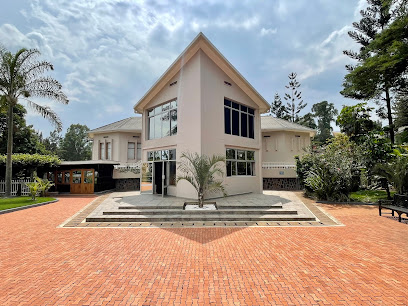
Inema Arts Centre
Discover the rich tapestry of Rwandan culture and creativity at Inema Arts Centre, a must-visit art hub in Kigali.
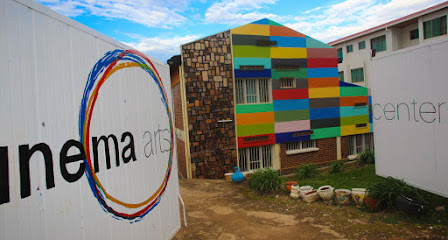
Nyungwe Forest National Park
Discover the breathtaking beauty and biodiversity of Nyungwe Forest National Park, a top destination for nature lovers and adventure seekers in Rwanda.
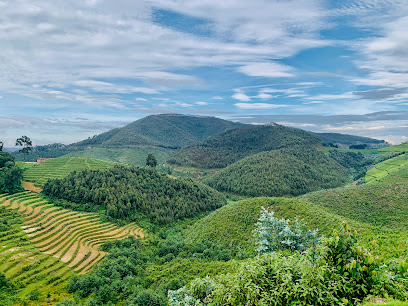
Ethnographic Museum
Explore Rwanda's cultural treasures at the Ethnographic Museum, a gateway to the rich heritage of the Rwandan people and their traditions.
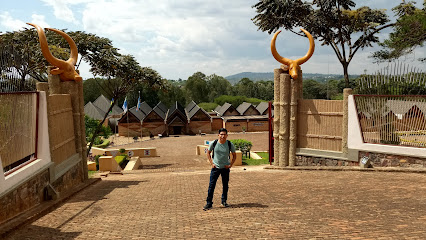
King's Palace Museum
Discover the majestic history of Rwanda at the King's Palace Museum, where royal heritage meets cultural exploration in a stunning setting.
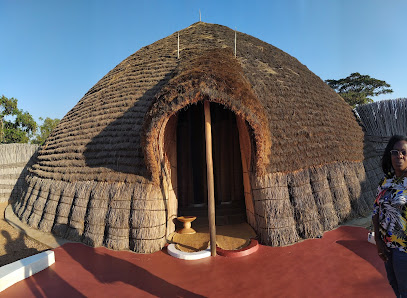
Rwanda Art Museum
Explore the Rwanda Art Museum, a cultural gem in Kigali showcasing contemporary and traditional Rwandan art in a historic setting.
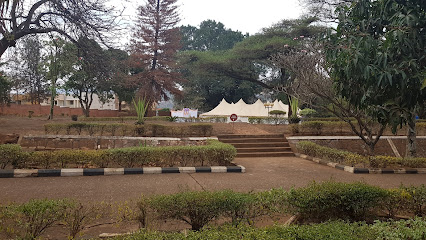
Kandt House Museum
Explore the rich tapestry of Rwanda's history at Kandt House Museum, a cultural landmark in Kigali showcasing colonial life and heritage.
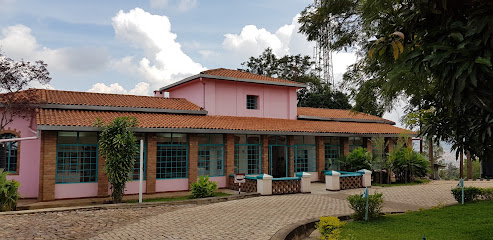
St Famille Church
Discover the spiritual and cultural heart of Kigali at St. Famille Church, a sanctuary of peace and architectural beauty.
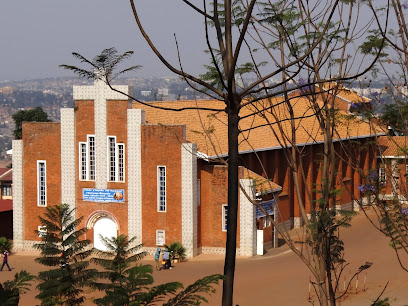
Belgian Peacekeepers Memorial
Explore the Belgian Peacekeepers Memorial in Kigali, a poignant tribute to bravery and a symbol of reconciliation amidst Rwanda's rich history.
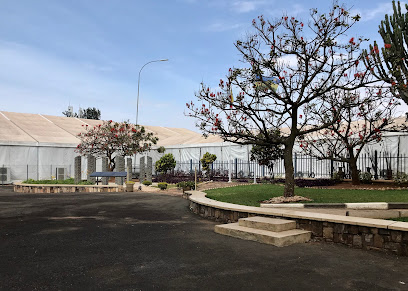
Niyo Arts Gallery
Discover the vibrant artistry of Rwanda at Niyo Arts Gallery, where culture and creativity come alive in the heart of Kigali.
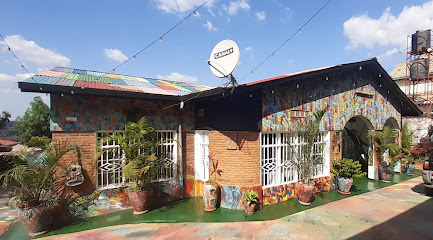
Rwiza Village
Experience the authentic charm of Rwiza Village, where rich culture, stunning landscapes, and warm hospitality await every traveler.

Kigali City Tower (Sagastein)
Discover Kigali City Tower, the tallest building in Rwanda, offering stunning views, shopping, and dining experiences in the heart of Kigali.
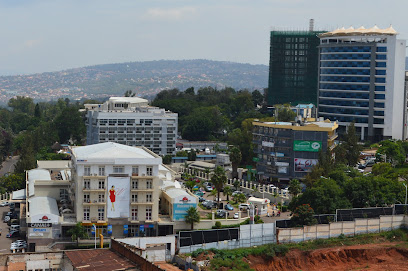
Campaign Against Genocide Museum
Explore Rwanda's journey of resilience and healing at the Campaign Against Genocide Museum, a powerful testament to history and hope in Kigali.
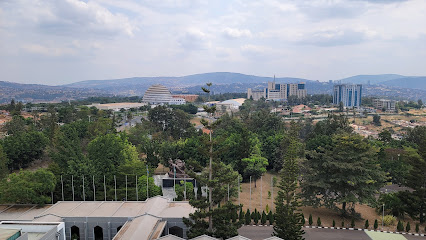
Nyanza Genocide Memorial
Explore the Nyanza Genocide Memorial in Kigali, a poignant tribute to resilience, history, and the spirit of reconciliation in Rwanda.
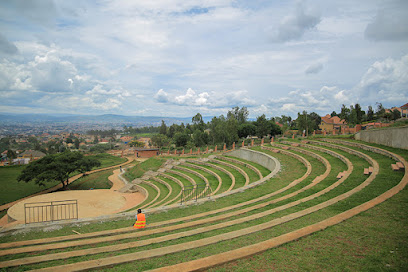
One&Only Nyungwe House
Discover unparalleled luxury at One&Only Nyungwe House, where nature meets elegance in the breathtaking Nyungwe Forest Reserve.

Unmissable attractions to see
Kigali Genocide Memorial
Explore the Kigali Genocide Memorial, a poignant and educational experience that reflects Rwanda's resilience and commitment to peace and reconciliation.
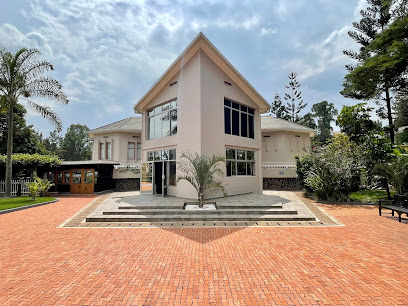
Nyungwe Forest National Park
Explore Nyungwe Forest National Park, a breathtaking UNESCO World Heritage site in Rwanda, rich in biodiversity and stunning rainforest landscapes.
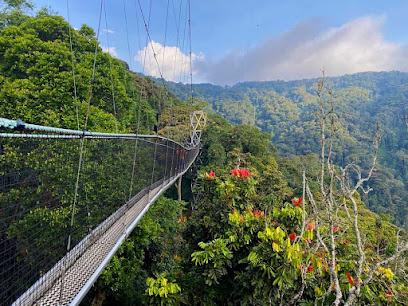
Nyungwe Forest National Park
Discover the stunning biodiversity and breathtaking landscapes of Nyungwe Forest National Park, a true gem in Rwanda's natural heritage.
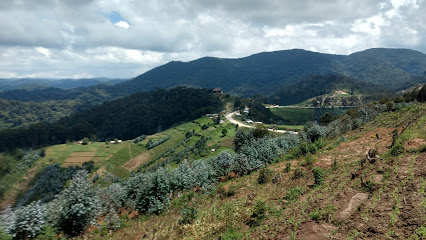
King's Palace Museum
Explore the King's Palace Museum in Nyanza and immerse yourself in the rich culture and history of Rwanda's royal heritage.
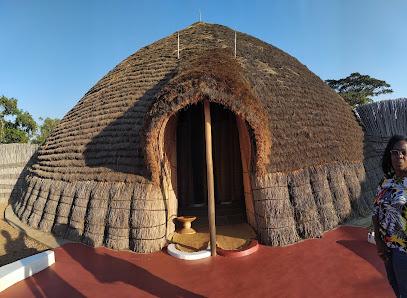
King's Palace Museum
Explore Rwanda's regal past at the King's Palace Museum, a captivating attraction showcasing the heritage of the Rwandan monarchy.
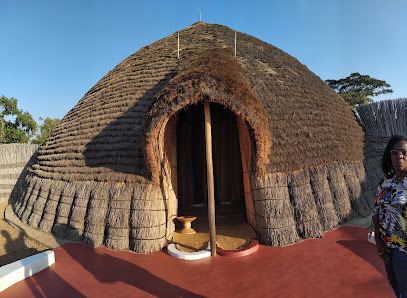
Museum of Environment
Explore Kibuye, Rwanda’s scenic lakeside town known for its rich culture, stunning landscapes, and the enlightening Museum of Environment.
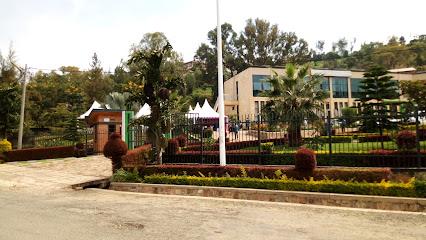
Museum of Environment
Discover Rwanda's natural heritage and environmental initiatives at the Museum of Environment in Kibuye, a must-visit for eco-conscious travelers.
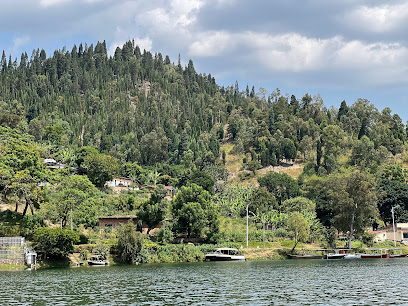
Gishwati-Mukura National Park and Biosphere Reserve
Discover the breathtaking landscapes and diverse wildlife of Gishwati-Mukura National Park, a UNESCO Biosphere Reserve in Rwanda.
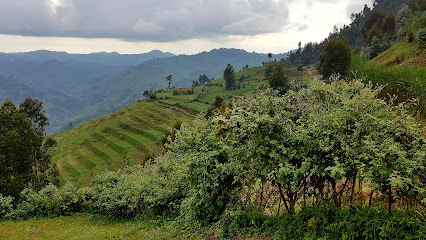
Kibuye Lake kivu boat tours
Experience the tranquil beauty of Kibuye Lake Kivu through unforgettable boat tours, stunning views, and rich local culture.
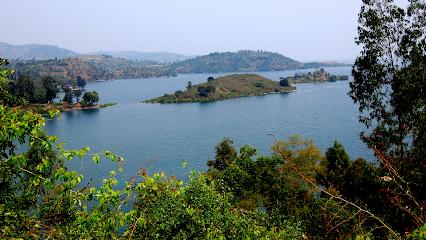
Azizi Life
Explore crafts, coffee, and culture at Azizi Life in Byimana, Rwanda, where every visit enriches your travel experience.
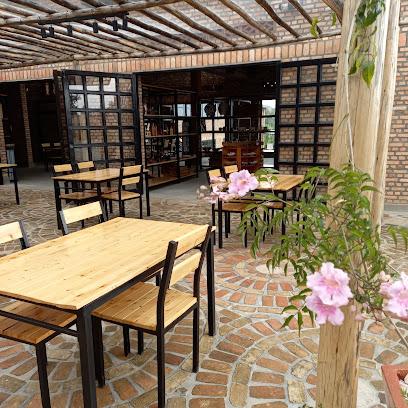
Les Chutes de Ndaba
Experience the breathtaking beauty of Les Chutes de Ndaba, a stunning waterfall in Rwanda, perfect for nature lovers and adventure seekers.
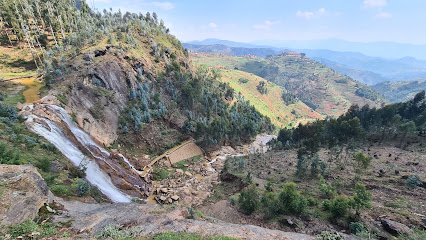
Honours Boat tour
Explore Kibuye's stunning landscapes and vibrant culture with Honours Boat Tour on Lake Kivu, a must-visit for every traveler in Rwanda.
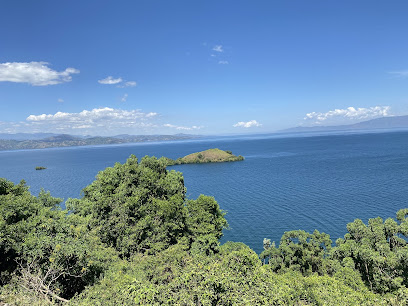
Elisha Tours Rwanda
Explore Kibuye: A stunning lakeside town in Rwanda, offering breathtaking boat tours and rich cultural experiences along Lake Kivu.
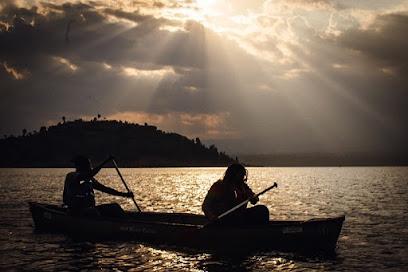
Kwigira Museum
Explore Rwanda's cultural heritage at Kwigira Museum in Nyanza, a must-see destination for history enthusiasts and curious travelers alike.
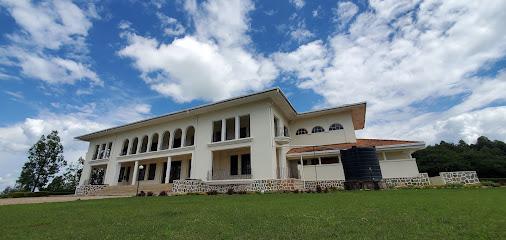
Rwesero Museum
Explore the rich cultural heritage of Rwanda at Rwesero Museum, where history and artistry come alive through immersive exhibits and artifacts.
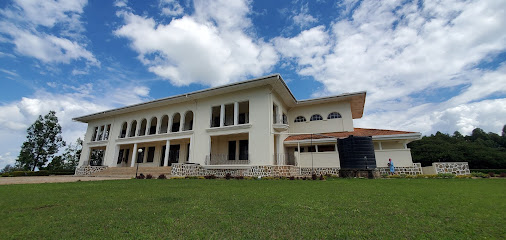
Essential places to dine
Cormoran Lodge
Discover tranquility at Cormoran Lodge by Lake Kivu - where exceptional dining meets stunning natural beauty in Kibuye.

Welcome to Kindi's Bar&Restaurant
Discover the authentic taste of Rwanda at Kindi's Bar & Restaurant in Nyanza - where local flavors meet warm hospitality.
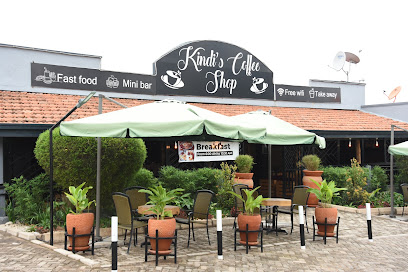
Sailors Resto & Cafe
Discover Sailors Resto & Cafe in Gitesi: A delightful restaurant serving local flavors and international cuisine amidst warm hospitality.
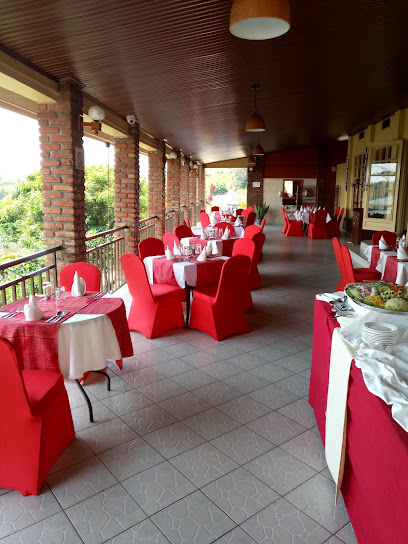
Nyamirambo Kuri Brochette
Discover authentic Rwandan flavors at Nyamirambo Kuri Brochette - where delicious brochettes meet vibrant local culture.
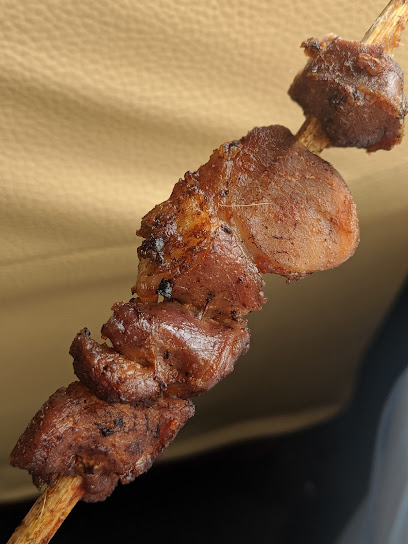
Oroha Sunset Beach
Discover the flavors of Rwanda at Oroha Sunset Beach, where exquisite cuisine meets stunning ocean views for an unforgettable dining experience.
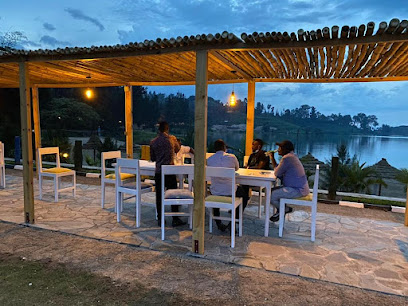
Carnival Club Beach
Experience the tranquility of Carnival Club Beach, where scenic beauty meets delightful local cuisine amidst Gitesi's serene ambiance.
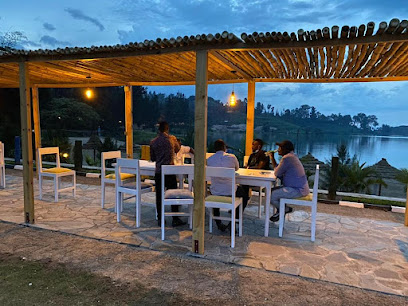
Chez Maman Joy
Experience authentic Rwandan flavors at Chez Maman Joy in Gitesi - a delightful culinary journey awaits every visitor.
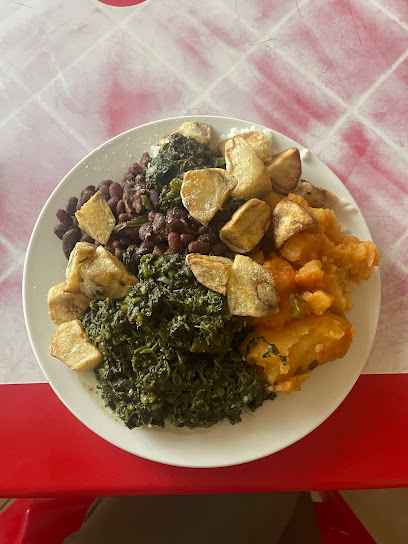
Umutimamwiza Restaurant
Discover authentic Rwandan cuisine at Umutimamwiza Restaurant in Kibuye, where local flavors meet warm hospitality amidst breathtaking scenery.
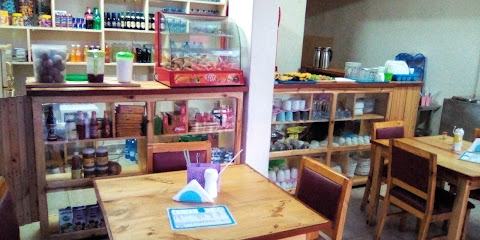
JIDOS PLAZA
Discover authentic Rwandan flavors at JIDOS PLAZA - a top grill destination in Kibuye offering delicious grilled dishes in a cozy setting.
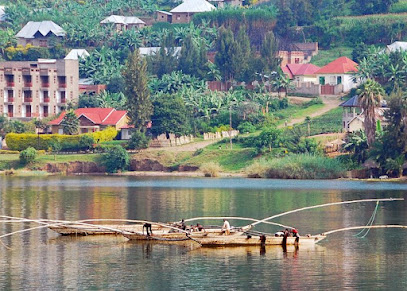
Murugwiro resto-coffee
Discover authentic Rwandan flavors at Murugwiro Resto-Coffee, where a delightful buffet awaits every food lover.
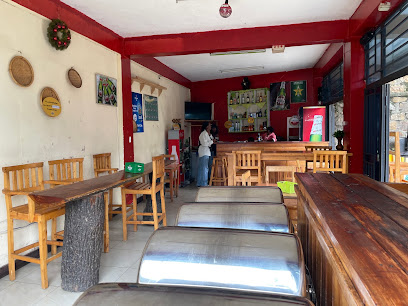
Univers MBC Company Ltd
Experience authentic Rwandan cuisine at Univers MBC Company Ltd in Mabanza—where local flavors meet warm hospitality.
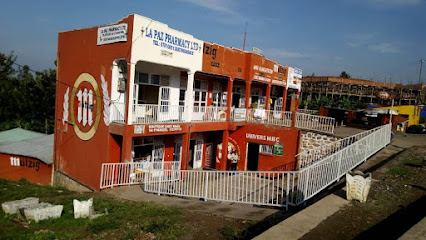
Karongi
Experience authentic Rwandan cuisine with breathtaking views at Karongi - your culinary escape by Lake Kivu.
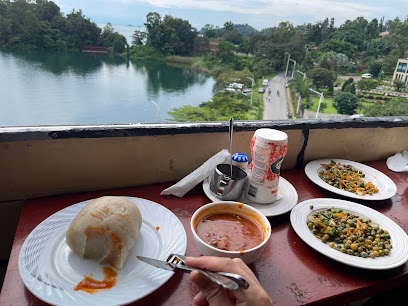
FOR YOU SNACK BAR LTD
Experience exquisite grilling at FOR YOU SNACK BAR LTD - where every bite tells a story of flavor and tradition in Rwanda.
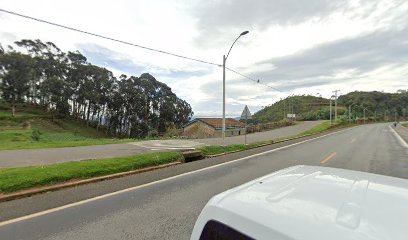
Family Resto-bar
Experience authentic local flavors at Family Resto-bar in Mutete - where every meal tells a story.
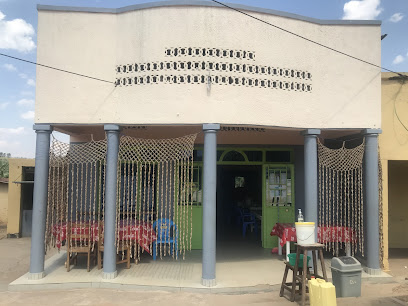
The Mirror Restaurant
Experience the perfect blend of local and international cuisine with breathtaking views at Kibuye's premier dining destination.
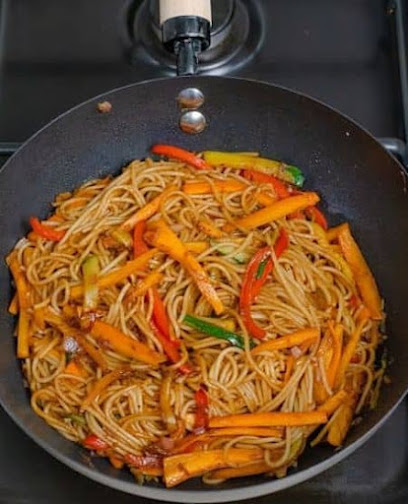
Markets, malls and hidden boutiques
Karongi Market
Experience local culture and vibrant commerce at Karongi Market, a must-visit destination in Gitesi, Rwanda.
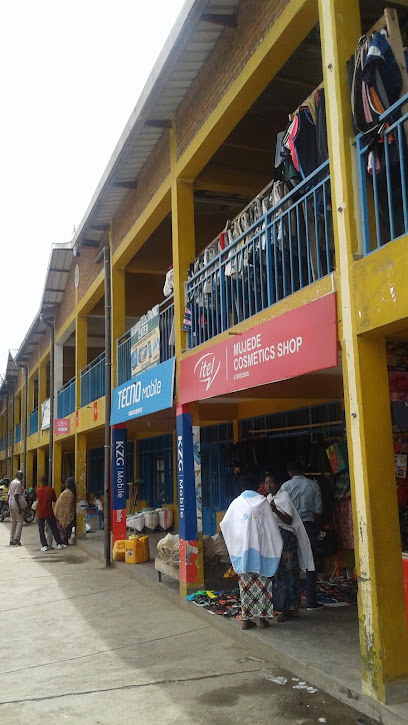
Roots Rwanda Online Shopping
Explore the best of Rwandan e-commerce at Roots Rwanda, your ultimate destination for electronics, fashion, and unique gifts in Kigali.
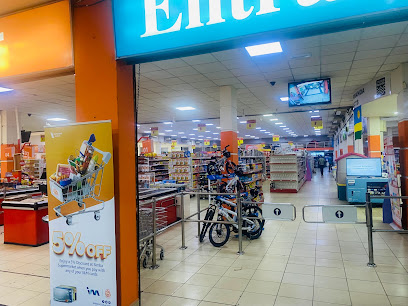
Basket Store
Explore Kigali's Basket Store, where Rwandan craftsmanship and culture come alive through unique handmade baskets and gifts.
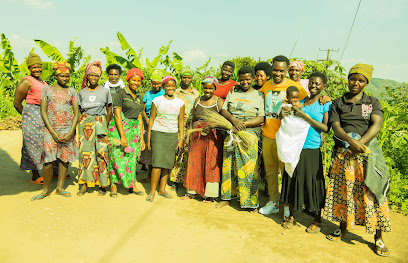
Gacurabwenge
Experience the vibrant culture and local crafts at Gacurabwenge, Taba's bustling marketplace filled with Rwandan treasures.
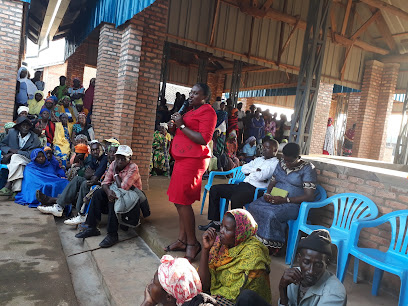
Ikaze Showroom
Explore the vibrant Ikaze Showroom in Kigali for authentic Rwandan crafts and unique African goods that tell a story.
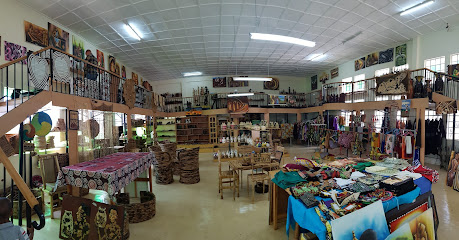
Karongi
Discover the flavors of Rwanda at Karongi, a premier lakeside restaurant offering exquisite dining with stunning views of Lake Kivu.
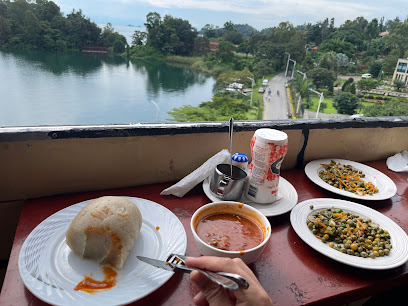
GAKENKE DISTRICT
Explore the vibrant craftsmanship and breathtaking landscapes of Gakenke District, a cultural haven nestled in the heart of Rwanda.

Agakiriro ka Rubengera sector,Karongi district
Explore Agakiriro ka Rubengera: A hidden gem in Karongi district for exquisite home goods and authentic Rwandan craftsmanship.

Gitaka centre de negoce
Discover the vibrant essence of Rwandan culture at Gitaka Centre de Negoce, a shopping mall offering unique local crafts and culinary delights.

Kibirizi Market
Discover Kibirizi Market, a vibrant shopping destination in Karongi Refugee Camp, where local culture, fresh produce, and handcrafted goods come together.
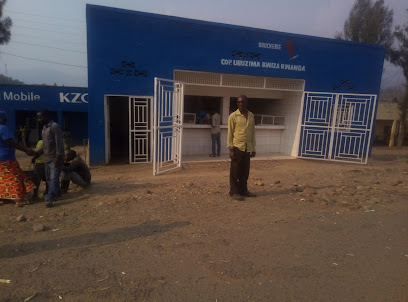
BRANIT
Explore the vibrant world of printing at Branit's, a cultural hub in Ruragwe showcasing local artistry and craftsmanship.
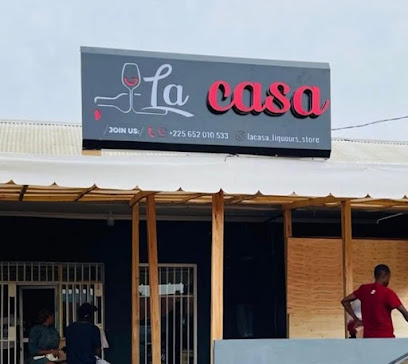
Africa XYZ - Karongi Branch
Explore the essence of Rwandan craftsmanship at Africa XYZ in Karongi - your gateway to local e-commerce and cultural treasures.
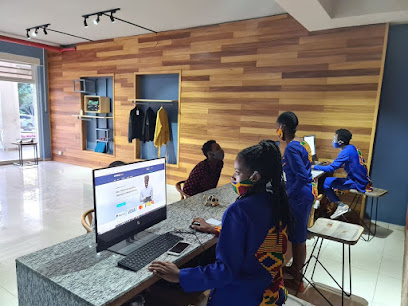
Wood carving shop
Explore the Wood Carving Shop in Karongi Refugee Camp for authentic Rwandan crafts, showcasing talent and tradition in every exquisite piece.

Quincaillerie One Love
Discover the heart of shopping in Bwakira at Quincaillerie One Love, where local culture meets a unique shopping experience.

HABINEZA THEOGENE
Discover the local flavors and vibrant culture at Habineza Theogene Supermarket in Busengo, Rwanda, where convenience meets community spirit.

Essential bars & hidden hideouts
One Love Bar (Chute Bar & Lodge)
Discover the vibrant nightlife at One Love Bar in Mabanza, where refreshing drinks and lively music create unforgettable moments.

Western Gate Bar(CHEZ BUNTU)
Experience the vibrant nightlife of Mabanza at Western Gate Bar (CHEZ BUNTU), where drinks, culture, and relaxation come together in a lively atmosphere.
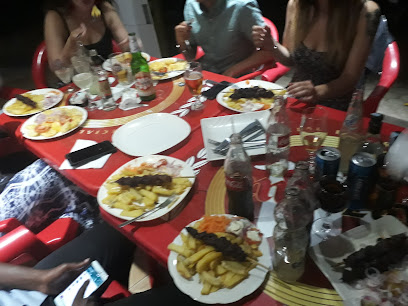
KUMUGANO BAR LODGE & RESTAURANT
Discover the vibrant flavors and warm hospitality at Kumugano Bar Lodge & Restaurant, a must-visit spot in Rwanda for an unforgettable dining experience.
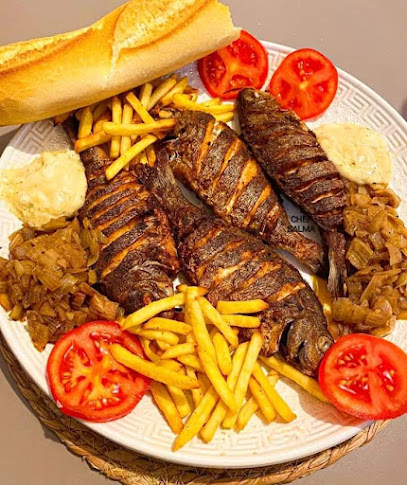
Kayenzi (Foyer)
Discover the vibrant ambiance of Kayenzi (Foyer), a bar in Ruragwe where local culture meets refreshing drinks in a welcoming atmosphere.
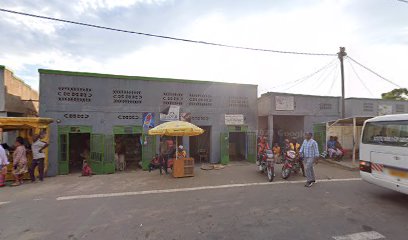
Karongi
Experience the culinary charm of Karongi, where local flavors meet stunning lake views in a vibrant dining atmosphere.
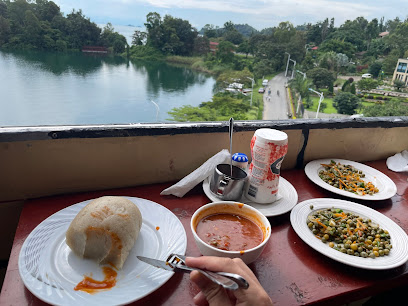
Golf Lake Beach
Experience the beauty and vibrancy of Golf Lake Beach, a serene getaway in Kibuye, Rwanda, where relaxation meets adventure by the stunning Lake Kivu.
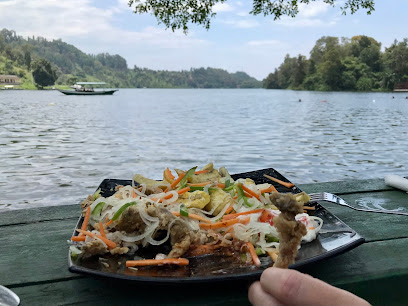
FOR YOU SNACK BAR LTD
Discover the vibrant flavors of Rwandan cuisine at FOR YOU SNACK BAR LTD, a top grill destination for visitors seeking authentic culinary experiences.
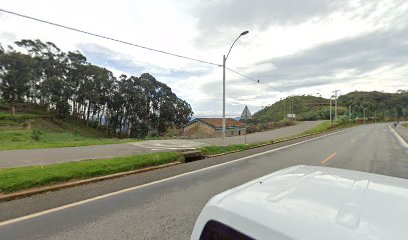
Kimwe pub
Experience the vibrant local culture at Kimwe Pub in Gitesi, where lively ambiance and friendly faces await every visitor.
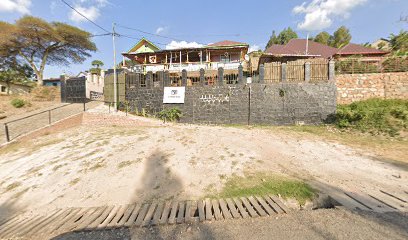
ISARO rubengera ltd
Discover ISARO Rubengera Ltd, a cozy bar in Mabanza offering a delightful selection of beverages and a friendly atmosphere for relaxation.

SAF BAR
Experience the local charm and vibrant atmosphere at SAF BAR in Bwakira, where refreshing drinks and friendly faces await.

Rebero Legacy
Discover the vibrant atmosphere of Rebero Legacy, a cozy bar in Mabanza, perfect for unwinding with friends or enjoying a refreshing drink after exploring.
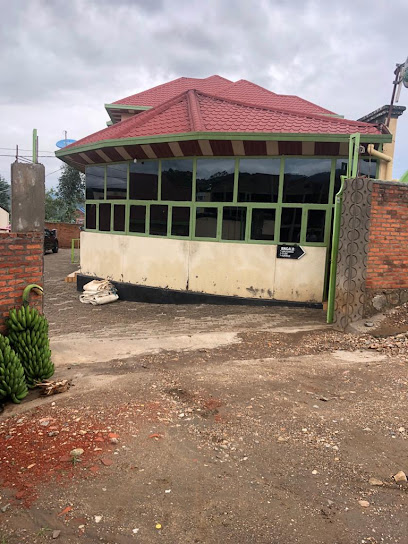
Benda Bar
Experience the vibrant flavors of Rwanda at Benda Bar, Mabanza's premier grill destination for culinary enthusiasts.

NDAYISHIMIYE Willy
Discover the vibrant local nightlife at NDAYISHIMIYE Willy, a bar in Gishyita offering refreshing drinks and cultural experiences.

Welcome Bar
Welcome Bar: Experience the perfect blend of local charm and relaxation in Colline Gitondore, a must-visit spot for every traveler.

Local Phrases
-
- HelloMuraho
[moo-rah-ho] - GoodbyeMurabeho
[moo-rah-beh-ho] - YesYego
[ye-go] - NoOya
[oy-ah] - Please/You're welcomeCyane
[chya-neh] - Thank youMurakoze
[moo-rah-koh-zeh] - Excuse me/SorryNasuzugura
[nah-soo-zoo-goo-rah] - How are you?Amakuru?
[ah-mah-koo-roo] - Fine. And you?Ni meza. Nawe?
[nee meh-zah. nah-weh] - Do you speak English?Wibaza ikinyarwanda?
[wee-bah-zah ee-keen-yah-rwan-dah] - I don't understandSinshobora kubona
[sin-show-boh-rah koo-boh-nah]
- HelloMuraho
-
- I'd like to see the menu, pleaseNifurije kureba meni, komeza
[nee-foo-ree-jeh koo-reh-bah meh-nee, koh-meh-zah] - I don't eat meatSiya ibiryo by'ibikoko
[see-yah ee-beer-yoh bee-ee-bee-koh-koh] - Cheers!Amahoro!
[ah-mah-hoh-roh] - I would like to pay, pleaseNifuza kugura, komeza
[nee-foo-zah koo-goo-rah, koh-meh-zah]
- I'd like to see the menu, pleaseNifurije kureba meni, komeza
-
- Help!Umwete!
[oom-weh-teh] - Go away!Kira!
[kee-rah] - Call the Police!Siba Polisi!
[see-bah poh-lee-see] - Call a doctor!Siba dokoteli!
[see-bah doh-koh-teh-lee] - I'm lostNarubaka
[nah-roo-bah-kah] - I'm illNdi byose
[nee byoh-seh]
- Help!Umwete!
-
- I'd like to buy...Nifuza gutwika...
[nee-foo-zah goo-too-wee-kah] - I'm just lookingNashaka kubona
[nah-shah-kah koo-boh-nah] - How much is it?Ni iki cyose?
[nee ee-kee choh-seh] - That's too expensiveIyo ni yaheze cyane
[ee-yoh nee yah-heh-zeh chya-neh] - Can you lower the price?Wibaza kugira isuku
[wee-bah-zah koo-gee-rah ee-soo-koo]
- I'd like to buy...Nifuza gutwika...
-
- What time is it?Saa ngapi?
[sah nah-gah-pee] - It's one o'clockNi saa rimwe
[nee sah reem-weh] - Half past (10)Y'umunsi (10)
[yoo-moon-see (10)] - MorningMugitondo
[moo-gee-ton-doh] - AfternoonMugitondo
[moo-gee-ton-doh] - EveningMugitondo
[moo-gee-ton-doh] - YesterdayEjo
[eh-joh] - TodayEjo
[eh-joh] - TomorrowEjo
[eh-joh] - 1Rimwe
[reem-weh] - 2Kabiri
[kah-bee-ree] - 3Gatatu
[gah-tah-too] - 4Kane
[kah-neh] - 5Gatanu
[gah-tah-noo] - 6Gatandatu
[gah-tahn-dah-too] - 7Kumwe
[koo-mweh] - 8Cumwe
[choo-mweh] - 9Icyenda
[ee-chyen-dah] - 10Icyenda
[ee-chyen-dah]
- What time is it?Saa ngapi?
-
- Where's a/the...?Ejo heza...?
[eh-joh heh-zah] - What's the address?Aho ni aho?
[ah-hoh nee ah-hoh] - Can you show me (on the map)?Wibaza kugira isohora (ku mapi)?
[wee-bah-zah koo-gee-rah ee-soh-hoh-rah (koo mah-pee)] - When's the next (bus)?Ni iki cyose (bus)?
[nee ee-kee choh-seh (boos)] - A ticket (to ....)Igicuruzwa (ku ....)
[ee-gee-choo-rooz-wah (koo ....)]
- Where's a/the...?Ejo heza...?
History of Karongi
-
Karongi, situated on the eastern shores of Lake Kivu, has a rich history dating back to pre-colonial times. The area was originally inhabited by the Bantu-speaking people, who established small, decentralized communities. These early inhabitants practiced subsistence farming, fishing, and cattle herding. The region was known for its lush landscapes, which provided an abundance of resources for the local communities.
-
In the late 19th century, Rwanda, including Karongi, came under German colonial rule. The Germans were interested in the region for its strategic location and natural resources. They introduced new agricultural techniques and infrastructure projects, such as roads and administrative buildings, which began to transform the local economy and way of life. The influence of German architecture can still be seen in some of the older buildings in Karongi.
-
After World War I, Belgium took control of Rwanda under a League of Nations mandate. During Belgian rule, Karongi saw significant changes, particularly in agriculture. The Belgians promoted the cultivation of coffee as a cash crop, which led to economic growth in the region. Coffee plantations flourished along the hillsides of Karongi, and the area became an important center for coffee production in Rwanda.
-
Rwanda gained independence from Belgium in 1962, and Karongi began to evolve as part of the new nation. The post-independence period saw investments in education, healthcare, and infrastructure. Karongi's scenic beauty and location on Lake Kivu also started attracting tourists, leading to the development of hospitality services. Local culture and traditions were preserved while the community embraced modernization efforts.
-
The 1994 Rwandan Genocide had devastating effects on Karongi, as it did on the entire nation. The region witnessed significant violence and loss of life. In the aftermath, Karongi, like the rest of Rwanda, embarked on a journey of reconciliation and rebuilding. Memorials and museums were established to honor the victims and educate future generations about the atrocities. The community's resilience and commitment to peace have been central to its recovery.
-
Today, Karongi is a vibrant town known for its eco-tourism and natural beauty. The area boasts stunning views of Lake Kivu, lush hills, and diverse wildlife. Efforts have been made to promote sustainable tourism, preserving the environment while providing economic opportunities for local residents. Visitors can enjoy activities such as boat tours, hiking, and cultural experiences that highlight the rich heritage of the region.
Karongi Essentials
-
Karongi is located on the western side of Rwanda, along the shores of Lake Kivu. The nearest international airport is Kigali International Airport, approximately 150 kilometers away. From Kigali, you can take a bus or a private taxi to Karongi, a journey that typically takes around 3 to 4 hours. Regular bus services are available from the Nyabugogo bus station in Kigali. Additionally, you can hire a car for a more flexible travel experience.
-
Karongi is a relatively small town, and many attractions are within walking distance. For longer trips, local taxis (both motorcycle and car taxis) are readily available and affordable. Public minibuses operate within the town and connect to nearby areas. Renting a car is also a convenient option for exploring the surrounding regions at your own pace. Bicycles are another popular mode of transport, especially for short distances.
-
The official currency in Rwanda is the Rwandan Franc (RWF). Credit cards are accepted in some hotels, restaurants, and shops, but it is advisable to carry cash, especially in smaller establishments and rural areas. ATMs are available in Karongi, but it is wise to withdraw sufficient cash in Kigali before traveling to ensure you have enough funds.
-
Karongi is generally a safe destination for tourists. However, like any travel destination, it is advisable to take standard precautions. Avoid walking alone at night in unfamiliar areas and keep an eye on your belongings in crowded places. While there are no specific high-crime areas targeting tourists in Karongi, staying vigilant and aware of your surroundings is always best.
-
In case of emergency, dial 112 for immediate assistance. The local police station and medical facilities are available in Karongi. It is recommended to have travel insurance that covers medical emergencies. For minor health issues, there are pharmacies in the town where you can purchase over-the-counter medications. The main hospital in the region is Kibuye Hospital, which is well-equipped to handle most medical emergencies.
-
Fashion: Do dress modestly, especially when visiting religious sites. Avoid wearing revealing clothing. Religion: Do respect local customs and traditions. Always cover your head when entering churches. Public Transport: Do be respectful and give up your seat to elderly passengers. Don't eat or drink on public transport. Greetings: Do greet people with a handshake. A slight bow of the head is also a sign of respect. Eating & Drinking: Do try local delicacies and accept food offerings graciously. Don't refuse hospitality, as it is considered impolite.
-
To experience Karongi like a local, visit the local markets where you can buy fresh produce and traditional Rwandan goods. Engage with locals, as they are often friendly and willing to share stories about the town's history and culture. Don't miss visiting the beautiful Lake Kivu and taking a boat ride to explore its islands. For a unique experience, visit the nearby coffee plantations and learn about the coffee-making process.
Trending Landmark in Karongi
-
Kigali Genocide Memorial
-
Inema Arts Centre
-
Nyungwe Forest National Park
-
Ethnographic Museum
-
King's Palace Museum
-
Rwanda Art Museum
-
Kandt House Museum
-
St Famille Church
-
Belgian Peacekeepers Memorial
-
Niyo Arts Gallery
-
Rwiza Village
-
Kigali City Tower (Sagastein)
-
Campaign Against Genocide Museum
-
Nyanza Genocide Memorial
-
One&Only Nyungwe House
Nearby Cities to Karongi
-
Things To Do in Kibuye
-
Things To Do in Muhanga
-
Things To Do in Butare
-
Things To Do in Rubavu
-
Things To Do in Gisenyi
-
Things To Do in Kigali
-
Things To Do in Nyamata
-
Things To Do in Ruhengeri
-
Things To Do in Kirundo
-
Things To Do in Kayanza
-
Things To Do in Cibitoke
-
Things To Do in Ngozi
-
Things To Do in Muyinga
-
Things To Do in Muramvya
-
Things To Do in Bujumbura








